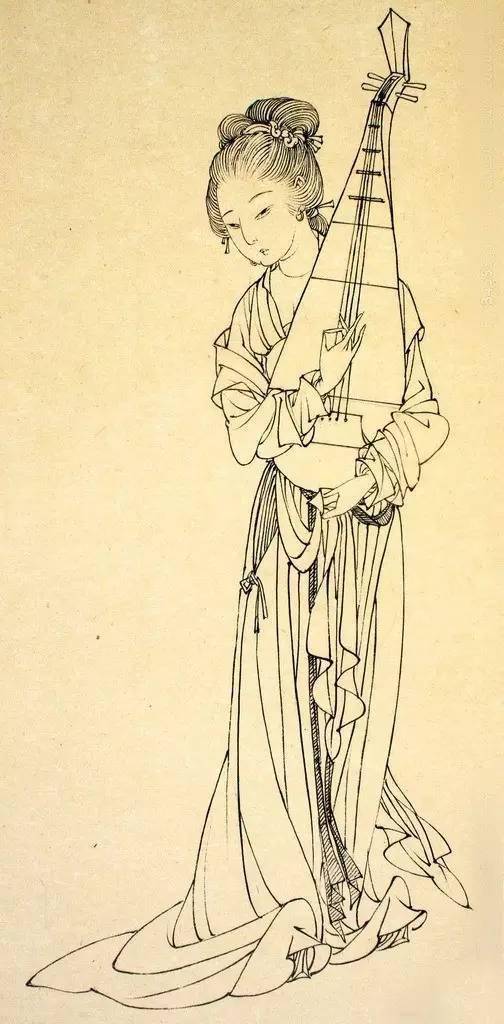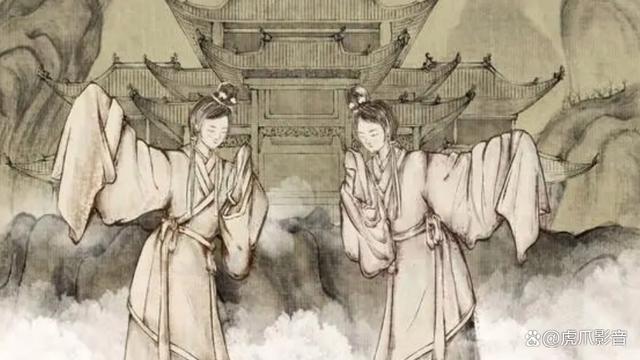The rise and fall of historical dynasties and their changes, as well as the vivid historical figures, have left deep imprints in the long river of history. Next, the History Encyclopedia editor will take you into the story of Yuan Tiangang’s fortune telling.

Yuan Tiangang, also known as Yuan Tiangang, seems to have been born with an unusual connection to the Tian Li Gang. Yuan Tiangang was born into a family in the mountains. When he was a child, he was very poor and couldn’t afford books, but he also loved reading. What should we do? There happened to be a Taoist temple on the mountain near his home, so Tian Gang often went to the temple at a young age, borrowing books on mathematics, physiognomy, and so on to read. Later, with the recommendation of Taoist priests in the temple, Yuan Tiangang went to a larger Taoist temple to become a monk. Before reaching the peak of his weakness, he had already mastered the mysteries of physiognomy.
According to legend, during the reign of Emperor Gaozong of Tang, the prime minister “Li Yifu” once sought fortune telling from Yuan Tiangang when his hometown was unknown. Lao Yuan saw that he had the fate to become a prime minister, but he was a short-lived guy. So, vaguely speaking to Li Yifu, he said that he was his son’s destined benefactor with a prosperous life. Upon hearing this, Li Yifu was overjoyed and then changed his mind. Since he said I have a prosperous life, he doesn’t know how long my lifespan is? If you die after enjoying it for a few years, wouldn’t it be in vain! So he continued to ask Tian Gang, and Lao Yuan was forced to say vaguely, ‘I have limited ability to see things after the age of 52.’.
Li Yifu heard him say so, so he didn’t ask any further questions. Later events proved that Lao Yuan’s inference was extraordinary. Li Yifu, with his talent, was appreciated by his father and son, and his life without explanation went straight to the prime minister. However, after gaining power for a while, he became arrogant and domineering again, doubling down on plundering the people’s wealth and causing them to boil with resentment. Eventually, this spread to the ears and he was sentenced to exile on the border. At the time of death, he was only 53 years old.

The above story can be considered an appetizer, and Yuan Tiangang’s fame is actually inseparable from what happened with Li Shimin! According to folk records, Li Shimin once summoned Yuan Tiangang and asked, “I heard that the Taoist master is good at predicting and predicting. I don’t know when the Tang Dynasty will perish.” This question scared Yuan Tiangang out of a cold sweat.
In fact, he had calculated it, but the secret cannot be said, let alone in front of the emperor. So, Lao Yuan shrugged off his own lack of ability and couldn’t figure it out. Li Shimin is very curious and cannot come up with this plan. It works with Li Yifu, but not with him. After repeated questioning, Yuan Tiangang could only barely say five words: ‘When the sow climbed the tree.’.
Upon hearing this, Li Shimin was overjoyed and rewarded Tian Gang heavily. Since ancient times, all founding emperors have been worried about the destruction of their foundation. Who wouldn’t want to pass it down for generations to come? How could a sow possibly climb a tree? In a hierarchical society, no one can joke with the emperor, as it is a charge of beheading. Yuan Tiangang said this, which naturally means that the foundation of the Tang Dynasty can be passed down for thousands of years. Even if he is not sure, it will be hundreds or even thousands of years later.
But no one expected that ‘the sow on the tree’ would actually come true! Originally, Yuan Tiangang had a clear intention. As we all know, over 200 years later, Zhu Wen established the State of Liang and destroyed the Tang Dynasty! ‘Pig’ is a homophone that refers to ‘Zhu Wen’; And isn’t “beam” the same thing as resin? The sow on the tree refers to the time when Zhu Wen established the state of Liang! We ordinary people cannot predict the future, but the development of history can be deduced and has rules to follow. Perhaps in ancient times, Taoist priests calculated according to this set of rules, but it is unknown.



